Lifetime Members
Lifetime Members
From time to time the society recognises the significant long-term contribution made by an individual to coastal knowledge, understanding or management (or to the society) by awarding life membership to the society. To nominate somebody for lifetime membership, please first read the Life Membership Selection Process and Criteria and then complete the Life Member Assessment Template and Guide.
Current life members are:
John Duder
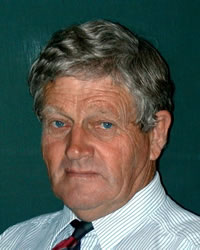
John Duder deservedly became the first Life Member of the Society at the 2006 Conference held in Kaikoura. This was a fitting tribute, given in recognition of his substantial contribution to the Coastal Society as well as to science and engineering in relation to the New Zealand coast.
John’s specialist fields are water resources and coastal engineering. He was appointed a Director of Tonkin & Taylor in 1982 and retired in 2003 to practice on his own account. After working for a consultancy in London early in his career, he was based in New Zealand and worked on numerous projects overseas.
As a practicing engineer, John has also provided support to students and peers throughout his career. He has lectured part-time in New Zealand, contributed to over 30 technical papers to various publications, and has delivered lectures and presentations to various seminars and courses, both in New Zealand and overseas.
John’s commitment to the coastal profession has extended throughout his career, through his involvement with the Coastal Society, in his membership of the IPENZ Standing Committee for the Environment and Sustainability, and in his practice of coastal engineering. John was made a Fellow of IPENZ in 1995 and was awarded the IPENZ Professional Commitment Award in 2004 in recognition of his significant contribution to coastal engineering in this country.
Outside the profession John is a keen sailor and has been a trustee as well as servicing as a volunteer deck officer for the Spirit of Adventure Trust. He has been involved with the Trust for over 30 years. John has also been active in local government with several years’ service as a member of the Devonport Community Board.
John’s role with the Society began with its very inception. It was during the 10th Australasian Conference on Coastal and Ocean Engineering, chaired by John, that a group of New Zealand participants met with representatives of the Australian National Committee on Coastal and Ocean Engineering to discuss establishing a similar organisation in New Zealand. Throughout 1992, John was part of a small team that included Andrew Laing, Terry Hume, Robin Falconer and John Lumsden, that set about organising the New Zealand Society for Coastal Sciences and Engineering.
The name, of course was later changed to the New Zealand Coastal Society, but the strength of the organisation today is due in no small part to the enthusiasm of people like John and his role in ensuring that the Society was properly established on solid foundations.
John was a member of the NZCS Management Committee from 1992-1999 and chaired the Society during 1994-1997.
John Lumsden
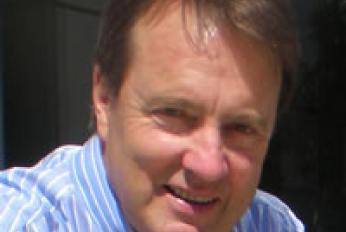
John Lumsden received the Life Membership of the Society at the annual conference dinner held in Tauranga in 2007. John was the second recipient of the award.
John Lumsden is principal consultant in a Christchurch based consultancy and has over forty years professional engineering experience, with specialist skills in coastal engineering and resource management.He also has twelve years experience working as a hearings commissioner on a variety of resource consent proposals. His work has featured integration of coastal and ocean sciences into coastal zone decisions. He has authored or co-authored over 60 reports and technical papers.
John helped establish the New Zealand Coastal Society in 1992 and was founding chairman. John remained on the NZCS Executive Committee until 2007, with only a couple of years off the committee during that time, applying his extensive knowledge to progress the Society and overseeing the production of Coastal News. John is truly a foundation stone of the Society who was instrumental in progressing the Society to where it is today.
Indeed, when the NZCS Executive Committee put in place the requirements for Life Member in 2006, it was John who drafted those and who sought that it only apply to those persons who had retired from work. The Committee saw fit to tweak the requirements knowing that John would be a worthy recipient.
After graduating as a civil engineer from the University of Canterbury John worked as a structural engineer in Canada for several years, returning in 1974 to join and become a director of Christchurch-based Morris & Wilson. Here he specialised in coastal and ocean engineering before becoming Project Director at the Centre for Advanced Engineering at the University of Canterbury in 1989, where he has worked on risk management, waste minimisation, energy efficiency, oceans and lifelines projects. John has achieved as much in these areas as he has in the coastal engineering field.
John has extended a comprehensive career in coastal engineering and resource management by establishing his own consultancy in 2004 and is far from retired just yet. However John has more recently found the time to take regular skiing holidays to Canada and to visit his children in Christchurch, Vancouver, and Perth.
John was Conference Chairman for the Pacific Coasts & Ports ’97 conference attended by some 340 delegates from around the Pacific. The conference was the combined 13th Australasian Coastal and Ocean Engineering Conference and 6th Australasian Port and Harbour Conference, held in Christchurch on 7-11 September 1997.
John has been on the organising committees of many other conferences, seminars and workshops, including the 2000 Our Oceans conference, and the 2006 NZCS Annual Conference held in Kaikoura.
John Lumsden was elected a Fellow of IPENZ in 2004 for his contribution to the advancement of engineering practice; specifically recognising his leadership in the development of coastal engineering practice in New Zealand. He was one of the first coastal engineers to recognise the need to go under water, and a feature of his work has been the integration of coastal and ocean sciences into engineering decisions concerning the coastal zone. His service to the New Zealand Coastal Society and IPENZ has been exemplary.
Professor Terry Healy
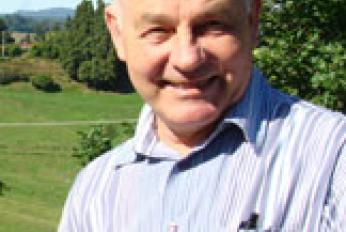
Professor Terry Healy died on 20 July 2010 after a long battle with cancer. Prior to his death his outstanding contributions to science were acknowledged with a Queen’s Birthday honour, a University of Waikato Medal and the life membership of the New Zealand Coastal Society.
Terry Healy was honored by the cream of the coastal management industry in May with a life membership of the New Zealand Coastal Society. Widely regarded as New Zealand’s pre-eminent coastal scientist, Professor Healy is only the third person – and the first scientist – to be awareded life membership of NZCS.
The honour was conferred at a special awards dinner in Hamilton attended by 85 colleagues, Society members, ex-students and family of Terry. The life membership award acknowledged Terry’s substantial contribution to our understanding of New Zealands’ coast over the past 40 years. He was Waikato University’s Research Professor of Coastal Environmental Science.
Terry spent a lifetime researching coastal erosion, sedimentation and hazard management, including tsunamis, and applying his environmental expertise to port and marina developments around New Zealand, from planning and development to management and monitoring of issues such as dredging and spoil disposal.
Professor Healy was one of the first members of NZCS and assisted the professional careers of many of our members. Since his elevation to professorship in 1990, Terry had built the Coastal Marine Group at Waikato University into the leading research group of its kind in a New Zealand University. In the 1990s the group was recognised as a Centre of Excellence for its research by NIWA. Terry also led coastal marine science research projects in New Zealand – particularly in the Bay of Plenty – in the Baltic Sea, the North Sea, Japan, and the United States.
His professorial Chair, sponsored by the Port of Tauranga Ltd since 1990, was the first Chair in Science to be sponsored by industry in New Zealand. Terry was also Adjunct Professor at Nanjing University, China, serving in that role since 1995. Terry was the major driver behind the New Zealand and Germany INTERCOAST (Integrated Coastal Zone and Shelf-Sea Research) initiative – a collaboration between Waikato University’s Coastal Management Group and Bremen University’s Marine Environmental Research Centre. INTERCOAST receives funding from the German Research Foundation DFG to train up to 39 PhD and post-doctoral scientists to tackle the challenges associated with coastal and shelf-sea areas subject to significant global changes.
His research assisted port and regional authorities across New Zealand in managing their operations efficiently and in maintaining the environmental health of harbour and coastal environments. In the 1980s he advocated for using knowledge of tides and currents to build beaches with sand dredged from navigation channels – a strategy that is now commonplace.
International recognition for his work includes acknowledgement as a ‘Top 100 Scientist” by the International Biographical Centre, Cambridge UK. He was the first New Zealander to receive the Alexander von Humboldt (AvH) Foundation Preistrager Award in 1997 after winning three Humboldt Fellowships in 1978, 1985 and 1989. Other Fellowships included a Fullbright, and research and invitation Fellowships from the Japan Society for Promotion of Science Research.
Terry was the director of US-based International Coastal Educational Research Foundation from 1989 until his death. The foundation publishes the leading international journal for coastal science and engineering, the Journal of Coastal Research. He also served as vice-president of the Scientific Committee for Oceanic Research of the International Council of Science (UNESCO).
In New Zealand he was a leading member of the Royal Society and served as New Zealand’s primary advisor to Civil Defence on tsunamis. In 2003 he was elected a Fellow of the Institution of Professional Engineers of NZ (IPENZ) – only the second non-engineering graduate to be accorded the honour.
As an educator, Terry developed a range of courses in coastal and marine science. During the 1990s when coastal issues became very important under the Resource Management Act, his third-year paper on coastal processes and management became the largest in the School of science. Terry said his main forte was supervising student research, and that he encouraged his students to treat him like ‘a sports coach’. During his academic career he supervised 119 postgraduate students.
Terry had a prodigious publication record of 584 scholarly items, including 256 peer-reviewed book chapters and journal articles, 52 reviewed research reports, 16 conference abstracts, 140 international conference presentations and 52 consulting reports. He also presented 38 statements of expert evidence in planning hearings, resource consent applications and Environment Court appeals. During his career he won 150 research contracts totaling more than $10 million, and led 21 major projects and expeditions, including two to the Antarctic.
Terry Hume

Terry Hume became the fourth ever member to receive the Society’s Life Membership. Terry was presented with the award at the Society’s annual conference held in Auckland during 2012, where the New Zealand Coastal Society was celebrating its 20th anniversary.
With over 40 years’ experience as a marine geologist and coastal oceanographer, NIWA Principal Scientist Dr Terry Hume has been at the forefront of research on New Zealand’s Coastal Environment. He’s one of a handful of coastal scientists working in New Zealand who in the truest sense wrote the book on our coastal environments. For example, in the late 1980s Terry and Ed (CE) Herdendorf classified estuaries into 16 geomorphological types. This work developed into a rule-based GIS classification in 2007 and as a classification for coastal hydrosystems in 2016, and is used throughout the world to assist in the management of estuaries.
More recently he has been involved with research looking at the effects of catchment runoff on sedimentation in estuaries. The research has increased our knowledge of Holocene sedimentation and rates of sedimentation and the effects that forestry and land clearance for agriculture and urbanisation have on estuaries.
Terry led the initiative to develop Coastal Explorer, a web-based database that provides basic information on the open coast shoreline and estuaries. The government-funded web tool is used by councils, Surf Life Saving New Zealand, and the public to help them better understand environmental change and coastal hazards.
At the local level, he has worked with councils, communities and schools to develop local adaptation strategies to climate change, and to identify ways to incorporate those strategies in coastal planning documents. He’s also been involved in research projects to determine societal planning for natural hazards and has been involved in initiatives such as the development of Cam-Era video monitoring that supports councils in monitoring and managing their coastal environments.
Terry earned his BSc in Geology at the University of Auckland and went onto complete his MSc and PhD in earth sciences at the University of Waikato. After graduating, Terry became a scientist for the Ministry of Works’ Water & Soil Division in 1976.
In 1988 he became Group Leader – Coastal of the Marine and Freshwater Division of the Department of Scientific and Industrial Research (DSIR), a role he continued in when DSIR transitioned to NIWA in 1992. As a Principal Scientist, he went on to lead NIWAs programmes on "Coastal adaptation to climate change" and "Coastal movement and sediment storage". He also held several management roles within NIWA, Assistant Regional Manager - Hamilton and National Projects Manager. Since 2015 he has been Managing Director of Hume Consulting Ltd.
Terry’s commitment to sharing ideas and knowledge about our coastal environment is legendary. He was one of the foundation members of NZCS and a member of its management committee from 1993 to 1994, and again from 1999 to 2004 as Editor of the Coastal News. Since 1993 he’s taught at the tertiary level for both the University of Waikato and the University of Auckland. He was certified as an RMA Hearings Commissioner in 2006.
Rob Bell
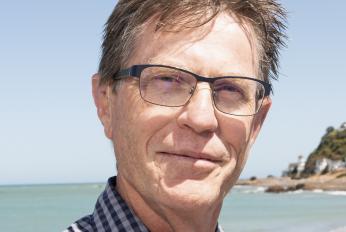
Rob was awarded NZCS life membership status in 2020 for his outstanding contribution to the NZCS since its inception and to the sustainable management of NZ’s Coastal Environment over the last four decades. His exceptional contribution spans the engineering and science of climate change and coastal hazard/risk and coastal oceanography. Over the last decade or so, Rob’s work has played a pivotal role in informing policy development and planning at the national scale.
Rob has 40 years’ experience as a research engineer and consultant. His current position is a Principal Scientist and NIWA Programme Leader (Climate Impacts and Adaptation), championing the area of hazard risks, sea-level rise, climate adaptation and adaptive planning and design.
Rob has authored/co-authored 106 Science publications, 140 consulting reports and more than 150 presentations at national and international conferences, public meetings, seminars and workshops. Science outputs related to coastal oceanography, hazards/risk and adaption include papers published in Journal of Geophysical Research - Oceans, Environmental Research Letters, Pure and Applied Geophysics, Est. Coastal Shelf Sci., Sustainability and NZJ Mar & Fresh. Res. Rob is presently a research leader in the MBIE Endeavour NZSeaRise Programme (2018–2022), Impacts and Risks of SLR; and Resilience to Natures Challenge - National Science Challenge – leader (Enabling Coastal Adaption objective, 2019– present) and a member of the NSC management group;
Rob's contribution to the coastal society include assisting with the organisation of several conferences, edited conference proceedings, presented at numerous regional events and NZCS conferences and assisted with organising interactive panel discussions and Young Professionals Breakfasts. Notable is the lead that Rob took in collating papers and editing the proceedings for the 10th Australasian Conference on Coastal & Ocean Engineering held in Auckland in 1991. The AGM at this conference saw discussion and a motion to establish a New Zealand coastal society, which eventually happened in 1992. Rob’s efforts have continued in this space with his contribution on the organising committee for Coasts & Ports 2015 in Auckland.
Rob’s work has been widely acknowledged. Outstanding achievements in recent years recognising Rob’s contributions to coastal engineering, science and planning include: 2019 Prime Minister’s Science Prize (with NZ Sea Rise and Antarctic Ice Research team); NZ Science (CRIs): Lifetime Achievement Award; 2019 NIWA Lifetime Achievement and Science Communication Excellence Awards; Fellow of Engineering NZ (2019); STUFF – Climate Change Power List; 2018- NZCS Terry Healy Coastal Project of the Year (MfE Coastal Hazards & Climate Change Guidance); 2017- NZCS Terry Healy Coastal Project of the Year (Hawkes Bay Coastal Strategy); 2015 – NIWA Excellence Awards – Applied Science.
Deirdre Hart
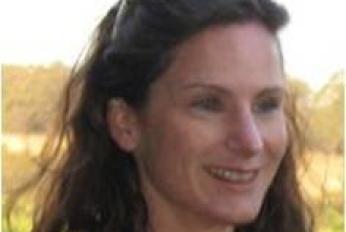
Professor Deirdre Hart received Life Membership of the society in 2024 and was presented with the honour at the Society's annual conference held in her hometown of Christchurch.
Professor Deirdre Hart is the Associate Dean of Science Academic in the School of Earth and Environment, and a Coastal Scientist/Geographer at the University of Canterbury. She has a PhD from the University of New South Wales (UNSW) in Sydney, Australia (2001 – 2004).
Deirdre has been an active member of NZCS since 2005 (19 years). During this time, she has made an outstanding contribution to NZCS and New Zealand’s coastal environment. Deirdre has contributed to the NZCS as both a Management Committee Member (2007-2013) and Chair (2011-2013). She has also supported organisation of NZCS Annual and Australasian Coasts & Ports conferences and has contributed as a presenter and session Chair at these conferences. Deirdre regularly provides content for the weekly digest and has also contributed articles to the Coastal News and NZCS Special Publications.
Beyond NZCS, Deirdre is a nationally and internationally recognised coastal scientist and her academic collaborations are evidenced in her many research publications and 1,500 citations. Deirdre’s research encompasses the physical, biological and human (including built environments) processes and multidisciplinary interactions in coastal environments . Her research and teaching interests include temperate and tropical coastal and river-mouth science, engineering and management, including in New Zealand, Korea, Italy, Antarctica and the U.S.A. Deirdre’s work has combined a range of techniques from field, to laboratory and numerical and theoretical modelling. Deirdre’s teaching and research-based degree supervision activities over two decades are wide ranging and demonstrate extensive linking of coastal science, engineering, policy and planning, monitoring, community and promoting national networks. Throughout her research and postgraduate supervision activities, she has supported the next generation of coastal scientists in diverse honours, Masters and PhD projects , including on river mouths, high-energy coasts, mudflats, reef sediments, pocket beaches and urban multi-hazards such as flooding and earthquake effects. To reflect her commitment to delivering pastoral care and an engaging teaching curriculum, Deirdre was the recipient of a 2007 teaching award at the University of Canterbury.
In addition to her academic and research achievements, Deirdre has an impressive track record in dissemination of coastal science through education, informed management, and community engagement. For example, she encourages all coastal undergraduate and postgraduate students to become members of the NZCS and facilitates their participation (posters and oral presentations) at NZCS and other international coastal conferences through Departmental funding.
Deidre’s contribution to coastal science has been recognised in awards including: the New Zealand Coastal Society Professional Development Award 2019-2020, the New Zealand Coastal Society Award for Best Conference Paper 2012, and the New Zealand Zonta Science Award 2008-2010. She has also contributed widely to consulting reports and studies which have helped shape coastal policy and planning in New Zealand (e.g. Earthquake Commission reports).

